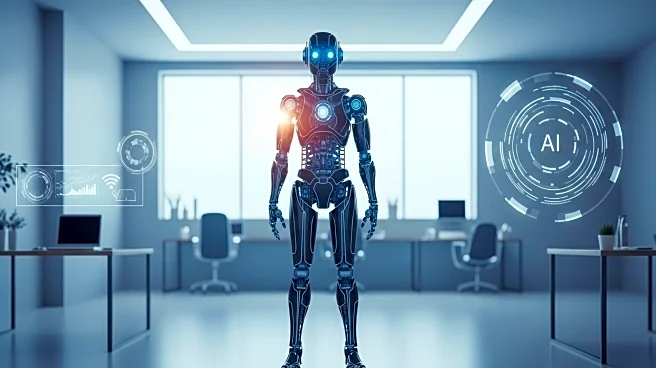What is the story about?
What's Happening?
A recent study conducted by Yale's Budget Lab, a non-partisan policy research group, has found that the introduction of generative AI models, such as ChatGPT, has not significantly disrupted the U.S. labor market. Despite widespread concerns about AI potentially replacing human jobs, the study indicates that there has been no discernible impact on employment levels since the release of these AI technologies. The study's authors, Martha Gimbel, Molly Kinder, Joshua Kendall, and Maddie Lee, suggest that fears of AI automation eroding cognitive labor demand are currently unfounded. This conclusion contrasts with statements from AI industry leaders, such as Anthropic CEO Dario Amodei and OpenAI CEO Sam Altman, who have warned of potential job losses due to AI. However, the study aligns with previous research, including a 2023 United Nations International Labour Organization report, which also found that generative AI is unlikely to replace most workers.
Why It's Important?
The findings of the Yale study are significant as they challenge the narrative that AI is a direct threat to employment. This could influence public policy and business strategies, as fears of widespread job displacement may be overstated. Companies and policymakers might reconsider their approach to AI integration, focusing on how it can complement rather than replace human labor. The study also suggests that the current economic impact of AI is more nuanced, with potential productivity gains offsetting any job losses. This could lead to a more balanced view of AI's role in the economy, encouraging investments in AI technologies that enhance productivity without reducing employment opportunities.
What's Next?
As the debate over AI's impact on jobs continues, stakeholders such as businesses, policymakers, and labor organizations may need to reassess their positions. Companies might focus on leveraging AI to improve efficiency and productivity rather than cutting jobs. Policymakers could consider creating frameworks that support AI adoption while safeguarding employment. Further research is likely to explore the long-term effects of AI on different sectors, potentially leading to more targeted strategies for integrating AI into the workforce.
Beyond the Headlines
The study's findings may also have cultural and ethical implications. The fear of AI replacing jobs has been a significant concern, influencing public perception and acceptance of AI technologies. By providing evidence that AI has not yet had a major impact on employment, the study could help alleviate some of these fears, fostering a more positive attitude towards AI. Additionally, it raises questions about the role of AI in society and how it can be used responsibly to benefit both businesses and workers.















